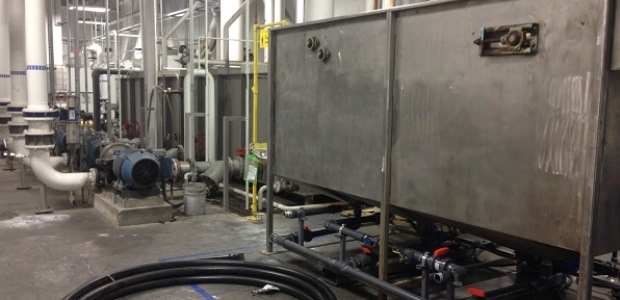
Anguil Environmental Launches Water Treatment Division
Anguil Aqua Systems, LLC provides turnkey water treatment systems and, working with its parent company, can supply integrated air and water treatment solutions.
After nearly 40 years in the air pollution control industry, Anguil Environmental has launched a water treatment division named Anguil Aqua Systems LLC. The new unit will leverage Milwaukee, Wis.-based Anguil's engineering experience and process knowledge; the company reported that it spent the past three years researching the market, forming a technical team and expanding its knowledge of water pollution technologies and techniques before officially forming Anguil Aqua, and during that period Anguil successfully completed several water treatment projects in the remediation and industrial manufacturing markets.
The company is now able to provide single-source responsibility for fully engineered, customized, and integrated air and water treatment solutions.
Anguil Aqua Systems provides turnkey water treatment systems and support for industrial facilities and remediation applications. "With an emphasis on engineering and problem solving, our goal is to provide environmental solutions today that help customers remain profitable tomorrow. Beyond providing solutions to meet stringent discharge requirements, our approach is to identify ways to reduce your company's environmental footprint by reducing overall water usage. Through water recycling and reuse techniques we are able to help your company recover valuable by-products. We then apply the properly sized water treatment systems with integrated air pollution control where applicable," according to information on the division's website.
It says the division specializes in treatment systems ranging in size from 50-1000 GPM (1,700 – 34,000 bbl/day) with solutions tailored to meet each customer's unique requirements for the removal and treatment of contaminants such as VOCs; Total Petroleum Hydrocarbons (TPH); emulsified fats, oils, and grease; gas range organics; diesel range organics; halogenated solvents (chlorine, bromine, and fluorine); dissolved metals; inorganic deposit or scale control; and total suspended solids.